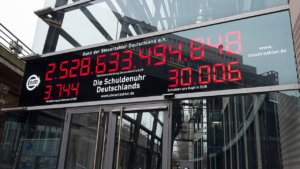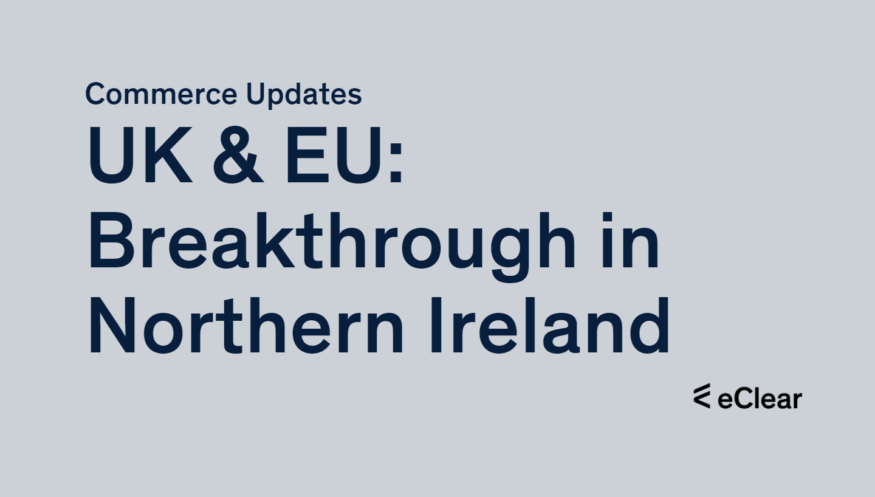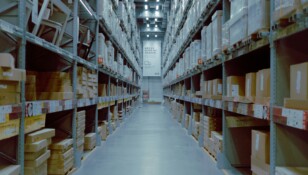The UK government and the European Union have agreed on a new deal, known as the Windsor Framework, to resolve the ongoing row over the Northern Ireland Protocol, reports breakingnews.ie. The protocol was designed to prevent a hard border between Northern Ireland and the Republic of Ireland following Brexit.
Still, it has created trade barriers between Northern Ireland and the rest of the UK. Under the new deal, a new system for the flow of goods will be designed, with anything destined for Northern Ireland travelling there as part of a “green lane” with fewer checks. In contrast, anything that could cross the border and enter the EU’s single market will travel through a separate “red lane”. The legal text of the protocol has also been amended on VAT to allow the UK government to make critical VAT and excise changes for the whole of the UK. The European Court of Justice will continue to be the final arbitrator of EU law issues in the region, but a “Stormont brake” will be introduced to allow the Northern Ireland assembly to flag concerns about changes to EU rules that would have a “significant and lasting” effect. The exact timeframe for the changes is yet to be confirmed.
Germany: 101.3 bn euro deficit in 2022

© BdSt/Bulgrin
The Federal Statistical Office (Destatis) has published preliminary calculations on the government financing deficit in 2022. The result is 101.3 billion euros, a reduction of 32.9 billion euros compared to the previous year. The impact of the war in Ukraine on the global energy market shaped government spending in 2022. Despite a sharp decline in expenditure on subsidies (-34.8%), current transfers increased by 25.4% and capital transfers made by 34.2%. The decrease in the financing deficit compared to the previous year is based, in particular, on a substantial increase in revenues by 6.4% with a lower increase in expenditures by 4.1%. The federal government’s financing deficit was 129.2 billion euros. In comparison, the financing surpluses of the Federal states (12.4 billion euros), the municipalities (8.8 billion euros) and the social security funds (6.7 billion euros) recorded an increase in 2022 compared to the previous year. Tax revenues increased by 8.0% in 2022, mainly due to the rise in corporate and payroll taxes.
ECJ rules that online platforms should be considered VAT collectors
According to a recent judgment, the European Court of Justice (ECJ) has ruled that online platform operators should be considered the supplier of the service, reports PWC. The case involved a registered UK company that operates a social media platform and charges a 20% deduction on user payments. The UK tax authority argued that the company should be deemed to be acting in its name and pay VAT on all sums paid by users, rather than just the 20% deduction. The ECJ ruled that the Council of the European Union had not exceeded its implementation powers by specifying that the platform operator is presumed to be the supplier of the services provided.
eBay.de abolishes fees for private sellers
eBay.de is abolishing fees for private sellers from 1 March 2023. This means that neither listing fees nor sales commissions will have to be paid to eBay in the event of a successful sale. With this step, eBay is removing the biggest hurdle that German consumers have seen about selling on eBay.de. Oliver Klinck, managing director of eBay Germany, expects that eliminating fees will make more used and lower-priced listings available to buyers. The elimination of fees is also an investment in the overall marketplace business. It expands the variety of offerings on eBay Germany, increasing sales opportunities for commercial sellers.
Alibaba’s first nine months’ net profit was down 37% year-on-year
The Chinese e-commerce giant Alibaba reported a 37.3% drop in net profit to 48,993 billion yuan in the first nine months of its fiscal year, according to cross-border-magazine.com. Still, its revenue rose by 1.8% to 660,487 million yuan despite Covid-19 restrictions. The domestic business showed a 1% decline, but the international trading platform earned 8% more. Alibaba’s cloud and logistics businesses saw revenue increases, and in the third fiscal quarter, the group’s attributable net profit rose 69%. Alibaba’s CFO, Toby Xu, stated that the group’s liquidity remains “strong” with “healthy cash flow generation capability.”
Ifo survey: Fewer German companies plan price rises
A recent Ifo Institute survey shows that fewer companies in Germany intend to raise their prices in the next three months. The ifo price expectations fell to 29.1 points in February, after 35.2 in January, the fifth decline in a row. ifo’s head of business cycle, Timo Wollmershäuser, explained that companies had already passed on a large part of the increased costs to their customers and that demand was declining in almost all sectors. Fewer companies now want to raise their prices in the retail industry. However, price expectations are still higher than in other sectors of the economy.
Zero VAT rate for digital magazines overturned by UK Supreme Court

© Pexels
The UK Supreme Court has ruled that supplies of digital publications, such as digital newspapers, are not zero-rated for VAT purposes, reports constablevat.com. The case concerned whether supplies of digital magazines that would be zero-rated in paper formats could also be zero-rated when published electronically before 30 April 2020. The court concluded that the term “newspapers” in Item 2, Group 3, Schedule 8 of the VAT Act does not include digital editions. This decision is expected to impact businesses that made protective claims to HMRC regarding digital publications or who have appeals standing behind this case.







